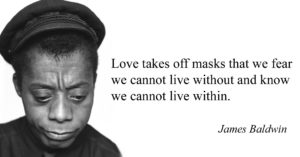Equality/Inequality
Public Theology
December 11, 2019[Serene Jones is the President and Johnston Family Professor for Religion and Democracy at Union Theological Seminary in the City of New York. She was formerly the Titus Street Professor of Theology at Yale Divinity School and chair of gender, woman, and sexuality studies at Yale University.]
“…good theology absolutely must be public theology. What is theology, if it’s not talking about our collective lives and the meaning and purpose of our lives and how we’re supposed to live together and who God is, in ways that are part of our conversation together?
[…]
God creates us to be glorious: gives us powers of intellect and love and connection and art, and we’re capable of amazing, extraordinary accomplishments. And yet, right next to this glorious side is this weird propensity that human beings have to choose what is not good for them, to choose evil, to sin, to close their eyes to the love of God and their own glory and to become harmful and self-destructive and destructive of others. And life is the struggle of those two realities within us. And they never go away. It’s not like you get over the sin part and become glorious; it’s not like you’re ever only sinful. That is the complex nature of who we are.”
[A Nativity scene at Claremont United Methodist Church in California depicts Jesus, Mary and Joseph separated and caged, as asylum seekers detained by ICE. Baby Jesus is wrapped in a foil blanket.]
“And the second thing I’d say about this political moment — and it’s a deeply theological claim — is, I honestly think, at the heart of our nation’s turmoil is the fact that people honestly do not believe that we are all equal and loved equally and equally valued. They just don’t believe that.”
‘You’re set free, actually, by the telling of the truth.’
“I realize that it’s my work to do, but I’m not going to be here to see what comes. And that’s OK. But we got a lot of work to do in these next years, all of us together, even if we don’t know where we’re going.”
And then James Baldwin says,
“I use the word ‘love’ here not merely in the personal sense, but as a state of being, or a state of grace, not in the infantile American sense of being made happy, but in the tough and universal sense of quest and daring and growth.”
❥



